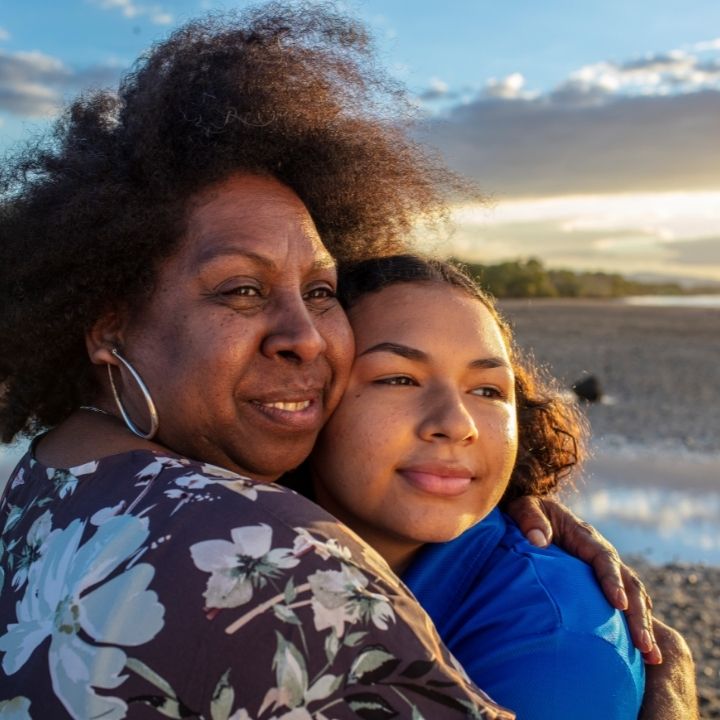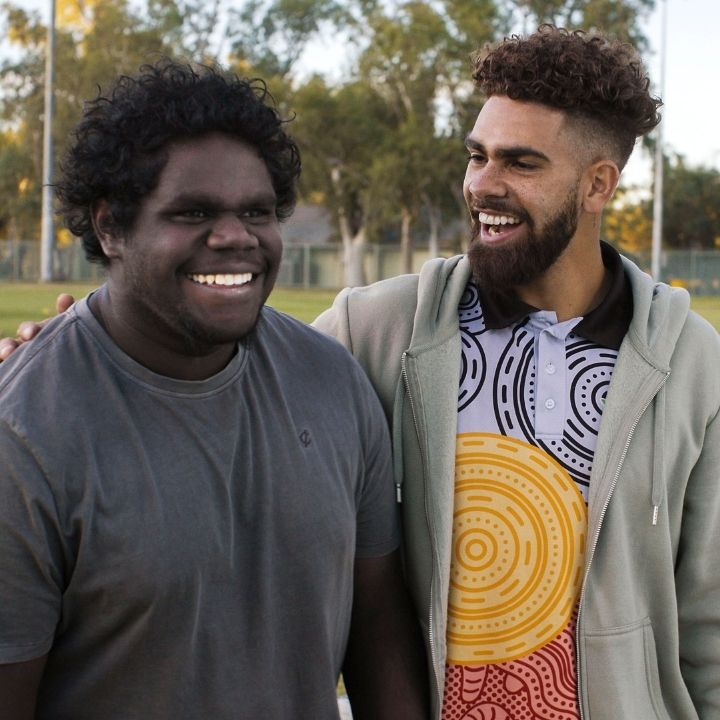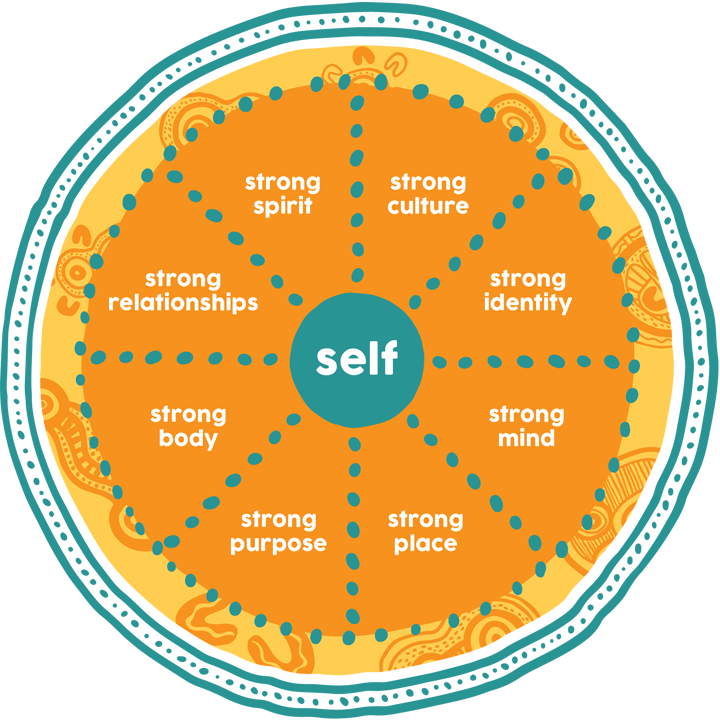What is strong culture?
Culture is a shared set of ways that guides how people live their lives. It includes beliefs, traditions, ways of understanding the world, ways of treating other people and ways of behaving. For many of us our culture is central to our identity and our wellbeing.
How can I be strong in culture?
Being strong in culture can include:
- learning about, recognising and celebrating our stories and way of life
- connecting with our Elders and community
- exploring what culture means to you, and
- frequently practising your culture.
This might be singing in language and attending ceremony for those who are fortunate enough to know this or it might simply be painting your stories, cooking big feeds with family or hanging with them on the weekends.
As Aboriginal and Torres Strait Islander peoples, our cultures are the oldest continually practised cultures in the world. They hold the answers to living better with each other and with the plants, animals and lands of our county. Strong culture is not about violence, it is not about hurt or impacting negatively on others.
Being stronger in culture means you have to put in your time and energy. Get connected, be prepared to be a learner and a listener. It will help you feel stronger in your identity, your spirit and your mind. You will likely build stronger relationships with your mob too and this will help protect you in the difficult times.
Taking steps towards a strong culture
There is no need to feel shame about how you feel your level of knowledge about your culture is. As Aboriginal and Torres Strait Islander peoples, we inherit our culture through kinship. With this in mind there are also ways that we can explore, to learn more about our culture. Which means for all of us, culture is also about continuously learning and practising it to take steps towards a strong culture within ourselves. We can all learn more about culture by:
- yarning with our Elders
- asking questions
- being brave and have many, many yarns until you find someone who can teach you culture proper way
- show respect and be open to learning.
If you can, attend your local cultural events, seek out Elders who are practising dance and song, show your interest and help out.
It is then up to you to pass on what you learn on your journey to the next generations.
What can impact on your cultural self?
There are many different things that can impact on your cultural self and often they can be influenced by the people around you and experiences. Some good and some not so good.
Some not so good impacts on your cultural self can be:
- seeing, hearing or experiencing discrimination
- misinformation and stereotyping about our culture
- breaking traditional lore
- treating your body in unhealthy ways.
Some good impacts on your cultural self can be:
- getting to know yourself by trying to learn and understand the world around you and where you fit in
- learning and practising traditional lore
- maintaining strong body, mind and spirit.
Keeping culture strong
There are many ways that you can keep strong in your culture. Traditionally, Aboriginal and Torres Strait Islander cultures are kept strong through the stories and guidance from our family and community Elders. Connecting with your Elders and listening and learning from them will help. There are also Aboriginal and Torres Strait Islander leaders and role models out there that help to keep culture strong. It is also good to remember that our Aboriginal and Torres Strait Islander cultures are one of the most resilient cultures in the world and we continue our resilience through maintaining our connection to country, to our community and to ourselves.
If you think you need help with connecting to culture, a good place to start is talking to important cultural people in your community. This might be a respected Elder or respected youth leader in your town. Your community might have a cultural centre that you can tap into for information and resources or you can start researching about aspects of your culture on the internet. Creativespirits is a great website to start your journey.
Discover the wellbeing wheel
This resource has been developed in partnership with the headspace Aboriginal and Torres Strait Islander Youth Reference Group (Womenjeka Reference Group), Marumali Consultations, the headspace National Aboriginal and Torres Strait Islander Advisory Group and headspace National.
The headspace Clinical Reference Group oversee and approve clinical resources made available on this website.
Last reviewed 1 July 2021.
Wellbeing wheel reference:
Gee, G., Dudgeon, P., Schultz, C., Hart, A, & Kerrie, K. (2014).Aboriginal and Torres Strait Islander Social and Emotional Wellbeing. In P. Dudgeon., H. Milroy, & R. Walker (Eds.), Working together: Aboriginal and Torres Strait Islander mental health and wellbeing principles and practice (2nd Ed.) (pp. 55-68). Canberra: Commonwealth of Australia.
Get professional support
If you feel you need help there are a range of ways we can support you.



